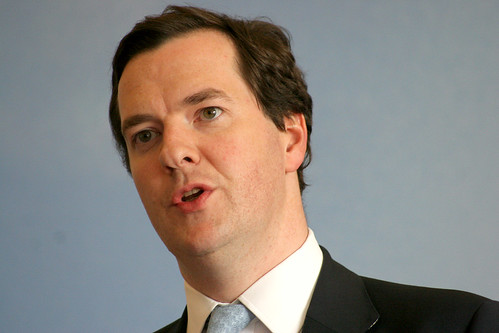Conservative Health spokesperson, Andrew Lansley, let slip that the Conservatives plan to ring-fence health and aid spending at the expense of a 10% cut for other departments. Labour jumped at the opportunity to cast the Conservatives as spending cutters.
Brown accused the Conservatives of being out of line with received opinion, “The only party that's proposing a cut in public spending is the Conservative party” said Gordon Brown at PMQs. What’s more, Labour proposed increased spending. (In itself, referring to public spending rather than investment is peculiar for frontbenchers.)
As it turns out Gordon Brown was being very misleading, you might even say that he was lying.
Due to the constraints placed on the treasury by the financial crisis, whoever is in government will have little choice about what to do. Both the Conservatives and Labour will do the same thing - protect healthcare expenditure and cut other departments more or less to the same amount, 10%.
The truth has come out and Brown has egg on his face. Cue George Osborne for a dose of piousness,
“The real dividing line is not ‘cut versus investment’, but honesty versus dishonest […] We should have the confidence to tell the public the truth that Britain faces a debt crisis; that real spending will have to be cut, whoever is elected; and that the bills of rising unemployment and the huge interest costs of a soaring national debt means that many government departments will face cuts in their budgets. These are statements of fact and to deny them invites ridicule.”
To the Times’ credit, they acknowledge, albeit fleetingly, that Osborne “gives no specific Conservative spending plans”.
So, is it a case of honest vs. dishonest?
Firstly, ‘honest’ should be prefixed by accidentally, reluctantly or surreptitiously, depending on which is actually the case. I would opt for accidentally given the way in which the Conservatives initially handled Lansley’s admission.
Secondly, there is more to Labour than dishonesty. As bad as Labour have been on the economy, the Conservative would have been far worse. When Brown acted swiftly to support banking when it was most needed Cameron, Osborne and Co. had little response.
Labour’s press management is appalling. Rather than the media focusing on the bold decisions made by Brown in contrast to the Conservatives' reluctance to do anything, the media are focusing on Brown’s petty lies. Labour have themselves to blame.
UPDATE
The day after this post was published Polly Toynbee offered the following advice to Labour:
UPDATE
The day after this post was published Polly Toynbee offered the following advice to Labour:
Talk about the national debt honestly and turn it against the Tories. If Britain really is coming out of recession, keep telling voters the truth: virtually every penny of debt comes from rescuing the country from depression and the knock-on effect of recession. Saving banks that were hours from shutting ATMs and starving the population, then flooding the economy with money to stop a depression, was action strongly supported by the Financial Times and the Economist. The Tories – alone – opposed it and would have plunged us back to the 1930s. Most of the debt is due to recession – when tax revenues dry up and unemployment costs soar. These costs would be phenomenally higher in a long Tory-induced depression. […]
Voters know the Tories will cut with relish anything they dare, but David Cameron will win on competence if he is the only one who seems to face up to the debt. Labour has the best record on the recession and the best record on public services – but no chance if no one believes a word it says.

No comments:
Post a Comment